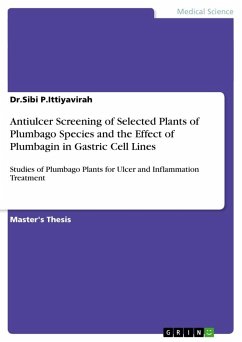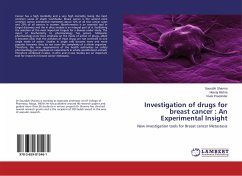
Anti-cancer effects of ¿-mangostin on human breast cancer cell lines
Versandkostenfrei!
Versandfertig in 6-10 Tagen
47,99 €
inkl. MwSt.

PAYBACK Punkte
24 °P sammeln!
In this book, -mangostin (AM), a xanthone compound was investigated for its apoptosis mechanism on MCF-7 and MDA-MB-231 cell lines. The treatment of the cells with AM prompted apoptosis with cell death-transducing signals. This type of apoptosis was suggested to occur through the both extrinsic and intrinsic pathways and prevention of translocation of NF- B from the cytoplasm to the nucleus. Our results revealed AM prompt apoptosis of the both cells through NF- B, Bax/Bcl-2 and HSP70 protein modulation with the contribution of caspases. Therefore, AM is deemed to have considerable potential in...
In this book, -mangostin (AM), a xanthone compound was investigated for its apoptosis mechanism on MCF-7 and MDA-MB-231 cell lines. The treatment of the cells with AM prompted apoptosis with cell death-transducing signals. This type of apoptosis was suggested to occur through the both extrinsic and intrinsic pathways and prevention of translocation of NF- B from the cytoplasm to the nucleus. Our results revealed AM prompt apoptosis of the both cells through NF- B, Bax/Bcl-2 and HSP70 protein modulation with the contribution of caspases. Therefore, AM is deemed to have considerable potential in the control of breast cancer.












